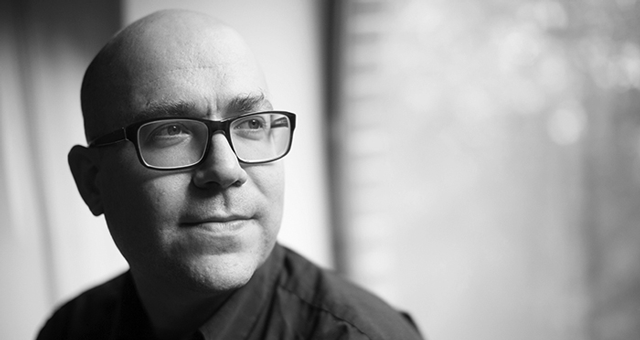By: CIFAR
29 Mar, 2018

CIFAR congratulates CIFAR Senior Fellow Alán Aspuru-Guzik, who is joining the University of Toronto as one of the Canada 150 Research Chairs announced today by Minister of Science Kirsty Duncan.
Aspuru-Guzik is a tenured professor at Harvard University, world-leading researcher in theoretical and computational chemistry and a Senior Fellow in CIFAR’s Bio-inspired Solar Energy program. He is jointly appointed to the departments of chemistry and computer science as the Canada 150 Research Chair in Theoretical & Quantum Chemistry. This summer, he will arrive at U of T, which is internationally known for its strengths in chemistry and artificial intelligence.
Aspuru-Guzik will also be a faculty member of the Vector Institute. CIFAR is leading the Government of Canada’s $125 million Pan-Canadian Artificial Intelligence Strategy, working in partnership with the three newly established AI institutes.
“I really got to know Canada and Canadian scientists through CIFAR”
“I really got to know Canada and Canadian scientists through CIFAR,” Aspuru-Guzik said. Some of his collaborators include CIFAR fellows Ted Sargent (U of T), Mario Leclerc (Université Laval) and Curtis Berlinguette (UBC).
“I also got to know Alan Bernstein, who helped me navigate many, many aspects of my move to Canada,” said Aspuru-Guzik.
Aspuru Guzik reached out to Dr. Bernstein, CIFAR’s President & CEO, and shared his interest in moving to Canada. From there, Dr. Bernstein introduced him to senior administrators in universities and the community.
“Congratulations to Alán on this prestigious appointment and congratulations to the Government of Canada and U of T. Alán is a brilliant scientist who will bring to Canada his scientific excellence and enthusiasm. He will serve as a magnet for young people wishing to pursue a scientific career. Canada, Toronto and CIFAR are all fortunate to have him,” said Dr. Bernstein.
The Canada 150 Research Chair program is a $117-million investment by the federal government to enhance this country’s reputation as a global centre for science, research and innovation, and to attract the world’s leading scholars and researchers.
Originally from Mexico City, Aspuru-Guzik earned his PhD and did his post-doctoral research at the University of California, Berkeley before joining Harvard in 2006. He became a tenured professor of chemistry in 2013.
Aspuru-Guzik’s long-term research goals are to disrupt chemistry by working on ideas stemming from computer science and robotics. He is particularly interested in bio-inspired solar energy and has published a series of papers in collaboration with CIFAR fellows ranging from synthetic circuits that mimic photosynthesis to the role of protein vibrations in converting sunshine into useful energy.
In January, a report led by Aspuru-Guzik was released on how the integration of artificial intelligence and robotics with materials sciences will lead to new clean energy technologies. The report is the result of an international workshop he co-led in September that brought together 55 researchers from around the world. The workshop was part of Mission Innovation, a partnership of 22 countries and the European Union that aims to accelerate global clean energy development. It was sponsored by CIFAR, along with the Mexican Ministry of Energy (SENER) and the U.S. Department of Energy.